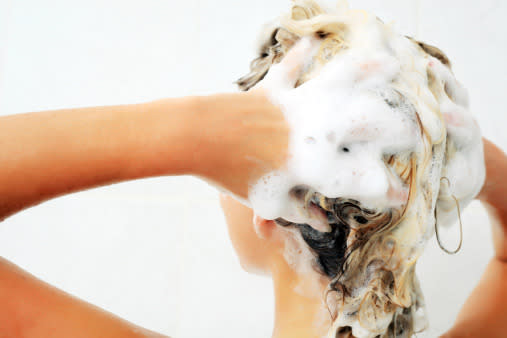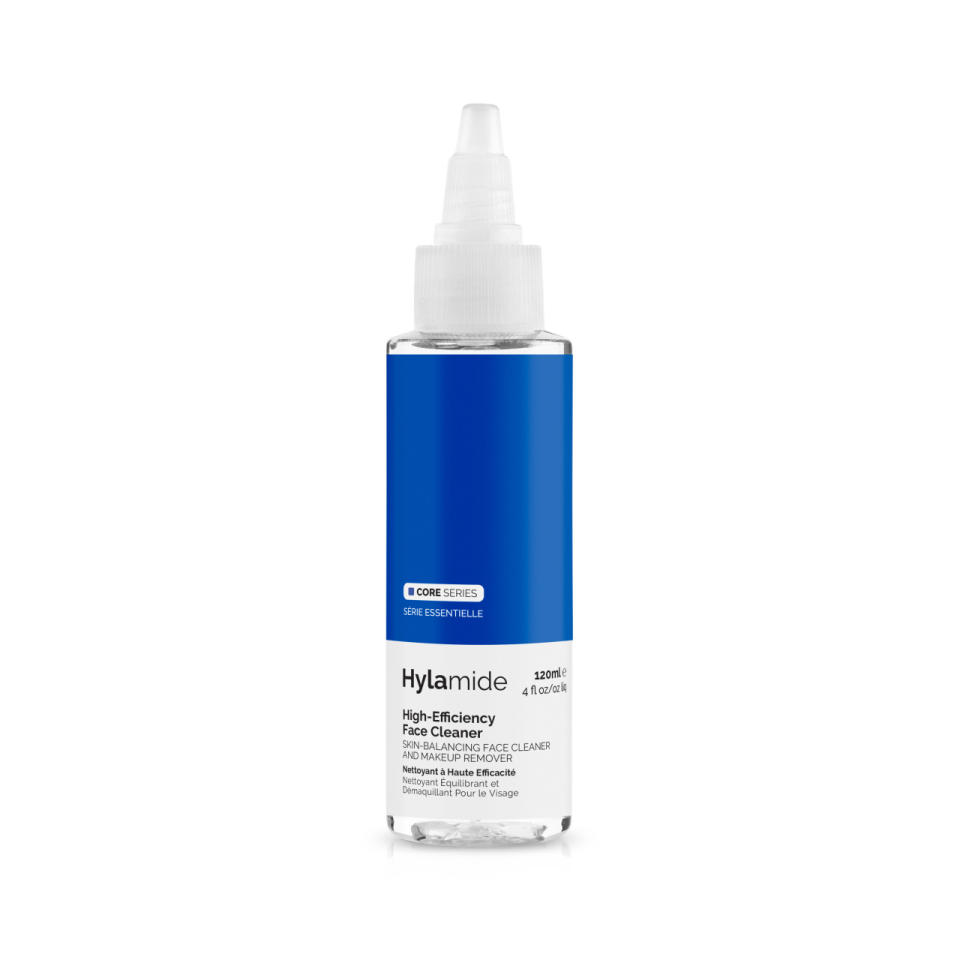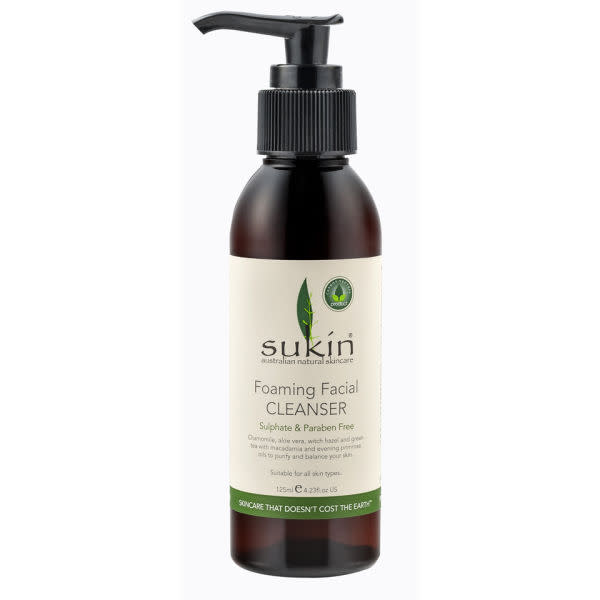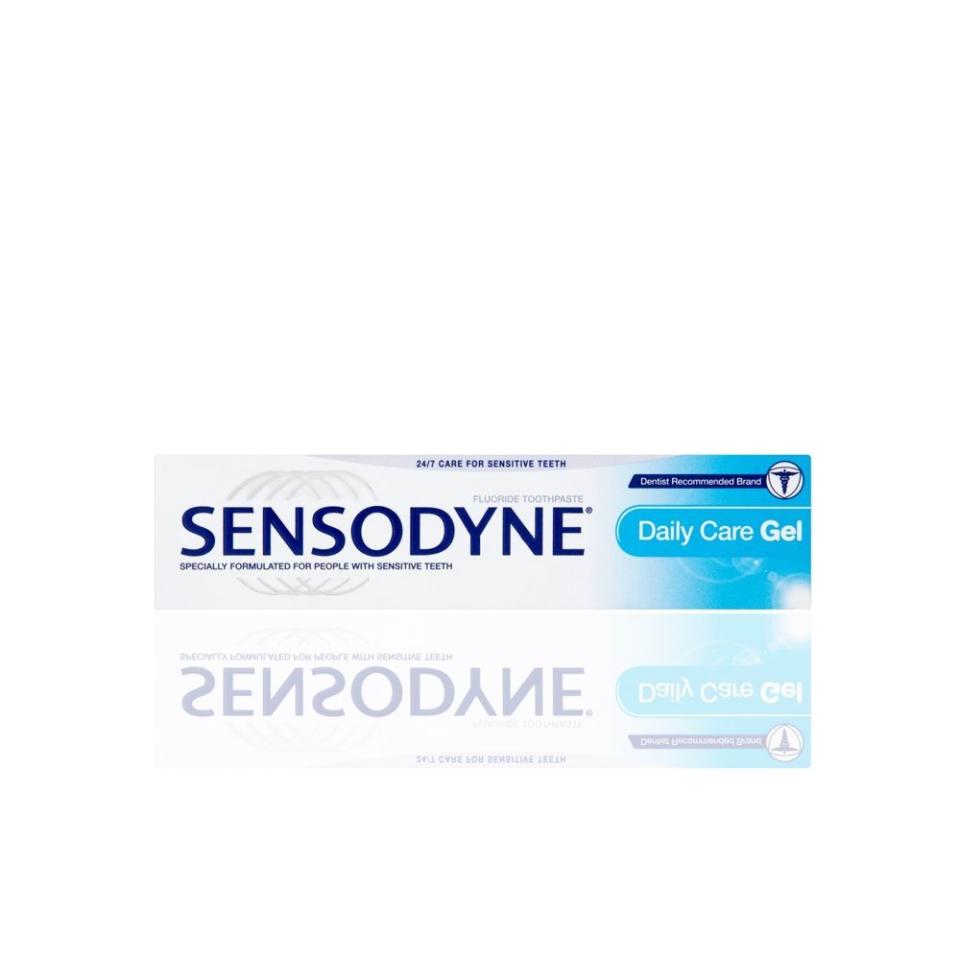The Truth Behind Sulphate-Free Beauty Buys: How Bad Are Sulphates For Your Skin?

Should we all be steering clear of sulphates? [Photo: Getty]
As consumers, many of us are starting to think more about what’s in our products and what we put on our skin. Looking at the vast array of beauty products available in the shops, you will certainly see the words ‘sulphate-free’ but do you know what it means?
We automatically assume that if something is ‘free-from’ something, it must be bad for us in some way. But what is a sulphate and how is it bad for our skin?

We are starting to think about what’s in our products [Photo: Getty]
What Are Sulphates?
Sulphates are a type of detergent that are found in various beauty products, especially shampoo, face cleansers and soaps. They often provide the foaming element to a product and are designed to remove oils from the hair and skin.
Newsletter: The Yodel
Trusted news and daily delights, right in your inbox
See for yourself — The Yodel is the go-to source for daily news, entertainment and feel-good stories.
The most common sulphates found in beauty products are Sodium Lauryl Sulphate (SLS), Sodium Laureth Sulfate (SLES) and Ammonium Laurel Sulfate (ALS). Take a look in your beauty cupboard; we guarantee you’ll find a product with one of these in – even organic and natural products may contain them.
Sulphates are relatively cheap to use and they’re effective at cleaning. They’re often found in industrial cleaning agents including car engine cleaner and professional floor cleaning products. SLES is also commonly used as a skin irritant in laboratories when testing products used to heal skin conditions.

Sulphates are a popular foaming agent [Photo: Getty]
So why would we want floor cleaner in our face products? Don’t worry, the levels of sulphates used in our products are more like 1% concentration compared to 10-20% concentration in cleaning products. If the balance isn’t right though, some sulphate formulas are highly likely to irritate sensitive skin and strip hair of it’s essential natural oils.
Do Sulphates Harm Our Bodies?
There is much debate over the impact of sulphates on the body and while there is no scientific evidence that directly link sulphates to cancer, there are still wide health concerns over their use in beauty products.
Whilst it’s generally considered safe to use in low concentrations, small amounts get absorbed by the bloodstream and there are studies that discovered that SLS will remain in a person’s system for up to five days. This is suspected to affect hormone levels, since it mimics Oestrogen and causes symptoms like PMS and menopausal problems.
Some studies also suggest that SLES can become contaminated with Dioxane – a known carcinogen that cannot be processed effectively by the liver and therefore remains in our bodies for much longer.

Are sulphates safe to use? [Photo: Getty]
Should we go sulphate-free?
It’s a personal choice. SLS has been safely used in cleansers since the 1930’s but the SLS-free market has grown exponentially in the last five years with products now widely available in stores, rather than just in salons.
SLS-free products are meant to reduce the chances of developing irritation or inflammation, so are very well suited to those with sensitive skin or underlying skin conditions.
When you use a sulphate-containing shampoo, apparently your hair might lose the ability to retain moisture over time. SLS-free products are designed to gently clean your hair without stripping it’s natural oils and thus preventing it from becoming brittle and dry.
SLS-free shampoo is widely suggested to retain hair colour in dyed hair for longer. This is because sulphates strip out pigmentation, along with the natural oils. After you’ve had your hair coloured, the salon will most likely recommend one for their professional shampoos which are sulphate-free.
Our Top SLS-Free Picks:

For brittle, coloured hair in need of a thickening boost try Pureology Fullfyl Shampoo £12. The colour-safe formula won’t strip the pigment from your hair and is actually designed to increase the density of each strand giving you vibrant, thicker-feeling hair.

For a full-face clean without over drying, the Hylamide High Efficiency cleaner £19 works like an oil cleaner but with the feel of a water-based one that rinses without the need for a cloth or a sulphate foaming agent.
As you rinse it off, the sulphate-free formula leaves behind an invisible layer of comfortable, non-pore blocking hydration.
.

If you still need that foaming feel from your face wash but want to avoid over-drying sulphates, try the Sukin Foaming Facial Cleanser £8.10.
Sukin is a 100% certified carbon neutral brand and this sulphate-free cleanser harnesses natural ingredients like aloe vera, green tea and macadamia oil to purify and balance your skin.

For those concerned about ingesting sulphates, then a good SLS-free toothpaste is Sensodyne Daily Care £3.49. It provides all the benefits of a regular toothpaste and does not contain any sulphate detergents. With regular brushing, it should help to strengthen teeth and reduce sensitivity.

If you’ve always had damaged and unmanageable hair, it may have been the sulphates drying out your hair follicles. Curly and Afro hair will suffer the most from this and therefore need extra moisture.
Try the new Fruit Fusion Coconut Water range from Shea Moisture which uses a potent concoction of moisturising ingredients that penetrate the cuticle to moisturise from within, rather than sitting on top of the hair. The Fruit Fusion Shampoo £10.99 contains extracts of delicious smelling Dragon Fruit and Lychee Berry.

Need an invigorating shower to start your day? The Mio Skincare Quickstart Exhilarating Shower Gel £18 brightens and nourishes with zingy spearmint and guarana caffeine to jump-start your body and get your mind alert.
The SLS-free formula uses coconut-derived cleansers instead for gentle but effective cleansing.
Would you make the switch to sulphate-free? Tweet us your opinion @YahooStyleUK.
The Rise Of Vegan Fashion: The Cruelty-Free Brands You Should Give A Toss About
Solve the daily Crossword

